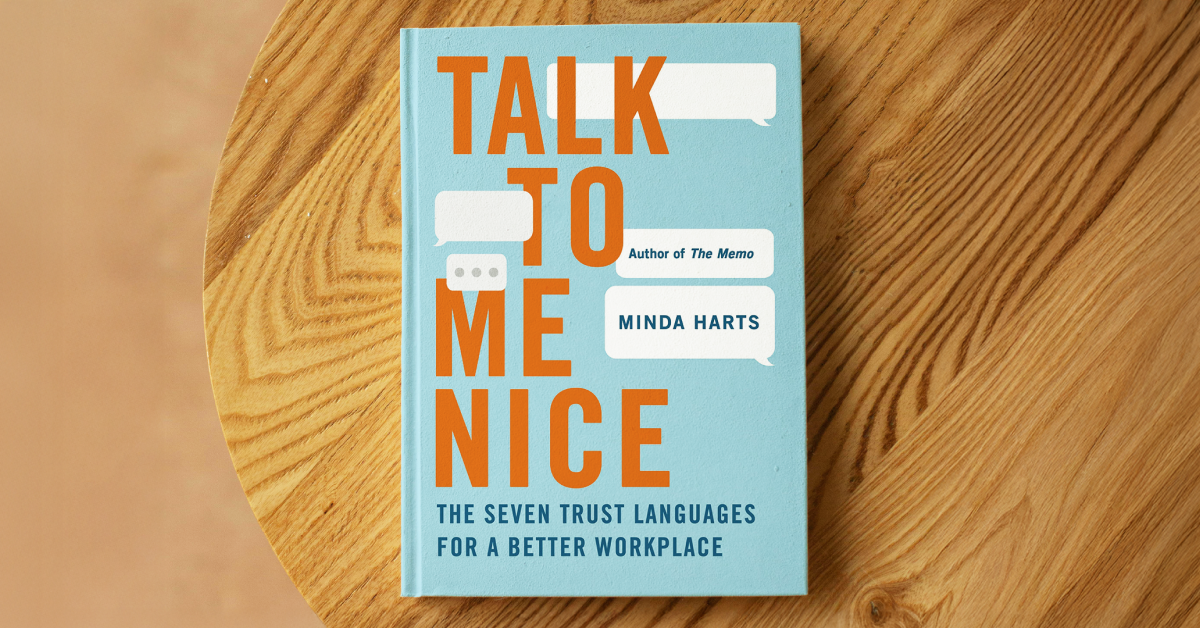When trust begins to fray, it’s the leaders who can communicate with empathy, listen deeply, and respond with clarity who preserve morale and keep teams engaged. These days sensitivity isn’t just a soft skill, it’s a strategic one. For Chief Member Minda Harts, bestselling author and workplace equity expert, reclaiming sensitivity is the key to building trust and ensuring every voice is valued.
In an excerpt from her latest book, Talk to Me Nice: The Seven Trust Languages for a Better Workplace, Harts offers practical steps for both leaders and their teams to foster more humane workplaces. From grounding tough conversations in facts to setting transparent HR policies, her guidance makes the case that sensitivity is not just a moral imperative, but a business necessity.
– L’Oreal Thompson Payton
In many workplaces, sensitivity often feels stifled, drowned out by the noise of daily tasks and conflicts. However, when trust wanes, it’s precisely in these moments that we desperately need our managers and colleagues to communicate with sensitivity. We must refuse to be passive victims of circumstance; instead, we hold the power to redefine our humanity at any given moment. Embracing these steps will guide you in reclaiming sensitivity and fostering a more empathetic workplace culture. So what can you do to speak this language more fluently? These steps will help you reclaim your sensitivity.
- Engage in self-advocacy. Employees should feel empowered to express their feelings and concerns, though it can be difficult. Requesting a private meeting with supervisors or HR can provide a safe space for discussion. When having this conversation, it’s essential to be clear about specific incidents or policies that contribute to feelings of dehumanization and, if possible, offer potential solutions. In other situations, you may have heard advice to approach difficult conversations with “I feel” statements, but in these circumstances, I always recommend starting with the facts. For example, I try never to start a difficult conversation with the words “I feel like you are being . . .” I like to root my examples in facts, not emotions. It might sound something like this: “Juanita, in yesterday’s meeting, you referred to me as an Indian; I have articulated to you several times that I identify as a Native American. Can you please explain to me why you refuse to acknowledge my culture?” Keep the facts the facts; anything else is accusatory, even if we know what it is.
- Seek peer support and create allies. Sharing feelings and experiences with trusted colleagues can provide emotional support and help employees not feel so isolated. Forming support groups or circles can be a powerful way to address concerns or even bring about organizational change collectively.
- Establish and set boundaries. Prioritize mental and emotional well-being by engaging in activities outside work that foster self-worth and happiness. Establish work-life boundaries. I didn’t say establish work-life balance; I said boundaries. Try avoiding overwork, take regular breaks, and ensure personal time is not consistently infringed upon by work demands.
These are just a few steps you can take when you feel undervalued. Since we are talking about preventative measures, let’s jump into what managers and HR leaders can do to prevent insensitivity and remove barriers as they arise.
Workplace sensitivity isn’t just a moral imperative; it’s a business necessity. When managers fail to recognize and value the human element, we miss out on the perspectives and contributions that everyone brings. By acknowledging these challenges and actively working toward creating a culture of trust and understanding, organizations can improve employee morale and drive more significant innovation and success. Here are five guiding principles you can use to help you on the road to more sensitivity:
- Create open dialogue. Create an environment where employees feel comfortable expressing their concerns without fear of retaliation. This could include regular check-ins.
- Offer training and continuous education. Conducting workshops on unconscious bias, inclusivity, and empathy can foster a more understanding environment. Training shouldn’t be a one-time event but part of the company’s lifestyle.
- Ensure fair play. HR should ensure that policies are appropriate and consistently applied. For example, HR provides a transparent pay structure and clear avenues for reporting harassment or discrimination.
- Recognize diversity. Encourage a diverse workplace and celebrate different perspectives. This could include hosting diversity days, panel discussions, and promoting inclusive hiring practices.
- Develop effective support systems. Support can come in many forms, like mentorship programs, flexible working hours for those with unique challenges, or even mental health resources.
The dynamics of the modern workplace sometimes overshadow the essential human element. However, by taking proactive steps, employees and managers can ensure that the humanity of everyone is recognized and celebrated, leading to a healthier, more productive environment.
Excerpted from Talk to Me Nice: The Seven Trust Languages for a Better Workplace. Copyright © 2025 by Minda Harts. Excerpted by permission of Flatiron Books, a division of Macmillan Publishers. No part of this excerpt may be reproduced or reprinted without permission in writing from the publisher.

